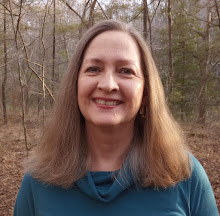This week a friend brought me some Japanese persimmons from
her tree. I’d never had any before and discovered they are delicious sliced
thin on spinach or arugula salad, with olive oil, red wine vinegar, salt, and
pepper. Their color alone is a welcome blast of brightness on a gray fall day.
Today at the Tuscaloosa farmers’ market I was able to buy
some Arkansas Blacks—a variety of apple I’d heard of, along with another, Ben
Davis, from my cousin Jim Few, but had never gotten to try. The skin is
reddish, but on the darker side of red, and the flesh is crispy and firm. It
reminded me most of a MacIntosh.
Despite not having tried one until now, I’ve already titled
a short story with the name: “Arkansas Blacks” will appear in the collection Tell the World You’re a Wildflower,
coming out from the University of Alabama Press in Fall 2014. Given my home state’s history with
school desegregation, a reader might initially assume that the plot will have
something to do with race. In the story, however, two sisters grow up on an
apple farm, and the Arkansas Black is one of the varieties they grow.
You find out the title’s meaning early on, right after the
first three introductory paragraphs, in the section titled “Fire”:
We came
around the corner of the house, our mouths purpled with berry juice, and in our
father’s excited state—he had seen the smoke and come in from the orchards—we
must have looked horrific, like ghouls. He screamed. Then he shouted at us:
“Where have you been? You’ve killed your mother!” We believed him. He himself
looked like a spaceman, garbed in protective gear and mask for spraying the
trees, which were under attack from worms. The Arkansas Blacks, with their
characteristic shiny, dark peels, were hit hard by the worms. Like everyone
else, we had Ben Davis trees too, but they were not much good for just eating.
Yesterday I got the copyedited files of Tell the World by email to review. Just now, writing “copyedited,”
I debated whether a hyphen should go between “copy” and “edited.” I’m partial
to hyphens, but the Chicago Manual of
Style, which the Press uses, is not, and Webster’s, the standard dictionary,
tends to combine rather than separate words like “backseat,” so I’ll need to go
through and consider the closed up (closed-up?) words on a case-by-case (case
by case?) basis. I’m glad the editor flagged these things for me to think
about, and after a quick review of the document I’ve already seen at least one
instance of her saving me from an error that would have been distracting or
confusing to readers.
Lots of details—but it’s exciting to be at this stage in the
book’s life. After the copyeditor is finished, the book will move on to design
and then production. If it takes a village to raise a child, it takes a
publisher—one with experience and expertise—to create a book.


